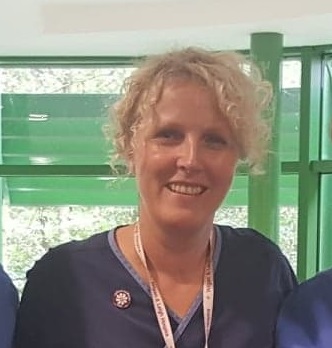By Debbie Jones, Manager of Hospice in your Care Home team at Wigan and Leigh Hospice

On April 26th 2021 my team held our first virtual information evening with families to discuss the importance of talking to their loved ones about their end of life care.
It was something families admitted they had not always put a great deal of thought into.
Some of the families – mostly sons and daughters of residents at the Chanters Residential Home – had discussed funeral plans but were surprised that they had never thought about those things leading up to death, such as what music their loved one would like to hear or what taste preferences they may have.
They didn’t realise that care preferences – such as whether they wanted to spend their last few days at home, in the care home, or in the hospice – could be recorded and that such choices would be prioritised.
One chance
All of these can – and should be – documented. After all, we only have one chance to get this right.
A document known as an ‘Advance Care Plan (ACP)’ can be used to record these decisions.
During the pandemic the service I manage has worked closely with care home staff and identified around 400 residents in homes in the Wigan Borough who could benefit from an ACP and have been assessed as having the capacity to participate in such conversations. Some of these residents have talked to us about their personal wishes, expectations and goals. However, they wanted to put their ACP on hold, until their families could visit and be with them to discuss these plans together face to face.
Songs and tastes
During the meeting with families, a member of our team discussed her own ACP. She has recorded where she wants to be when she dies, who she wants with her, the songs she wants to be played and the even the tastes she wants to experience in her final days. In the last few days, swallowing often becomes more difficult, but we should be considering what that person might like to taste and be creative with how we provide oral care. For example, if we know someone liked the taste of brandy, and that a glass of this was part of their daily routine before their health deteriorated, they might like to taste a mouth swab with brandy on it. It may seem something small but it can mean a lot to that person, and can ensure care is individual and focused on comfort and preferences.
Peace of mind
It can be challenging to initiate Advance Care Planning if families and care home staff don’t feel confident to broach the subject, therefore the work we do involves educating and supporting lots of care settings, including nursing and residential homes, so that staff feel more knowledgeable and confident to deliver dignified end of life care. It gives the resident or patient peace of mind to know that at the end of their life, their preferences and wishes will be known, and respected as fully as possible.
At the meeting, the daughter of a resident said she would be visiting her dad the next day and was really keen to start having some discussions with him about his future care.
If your health, or the health of someone you love is deteriorating, you may want to consider discussing preferences and wishes with a health professional. Thinking about Advance Care Planning is a positive step in communicating what someone would want or not want if they were living with an illness that was likely to get worse.